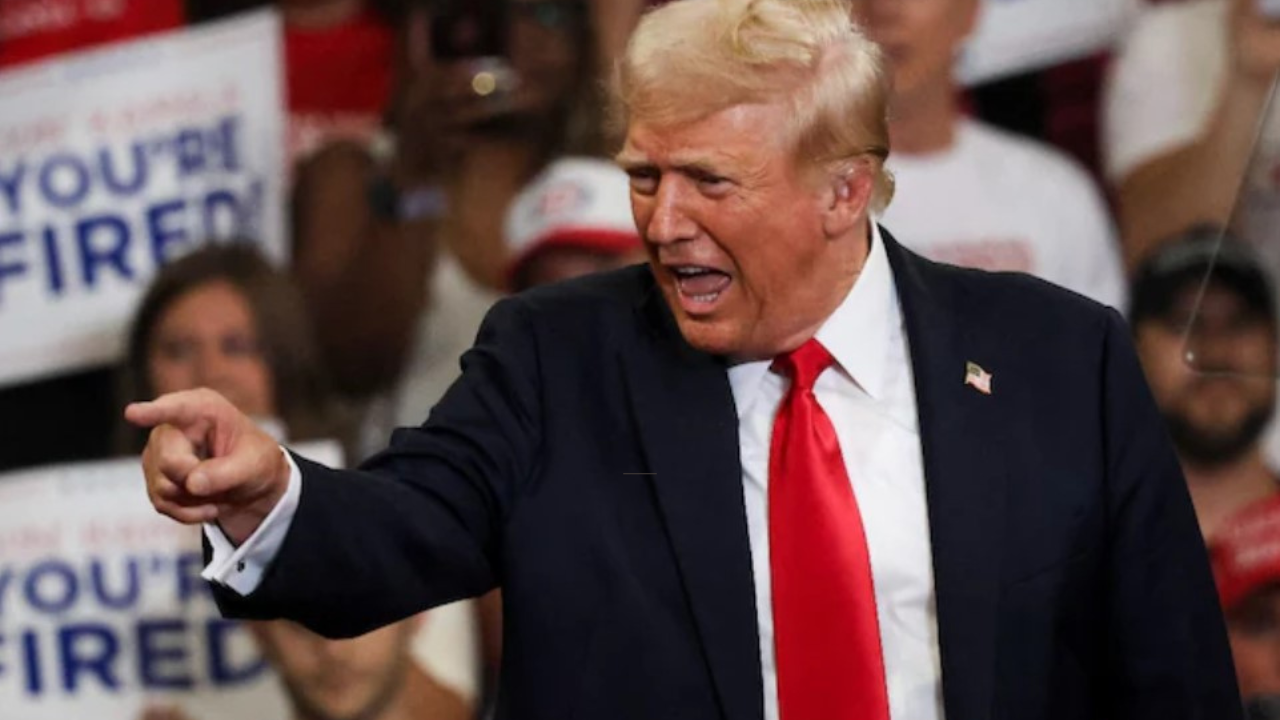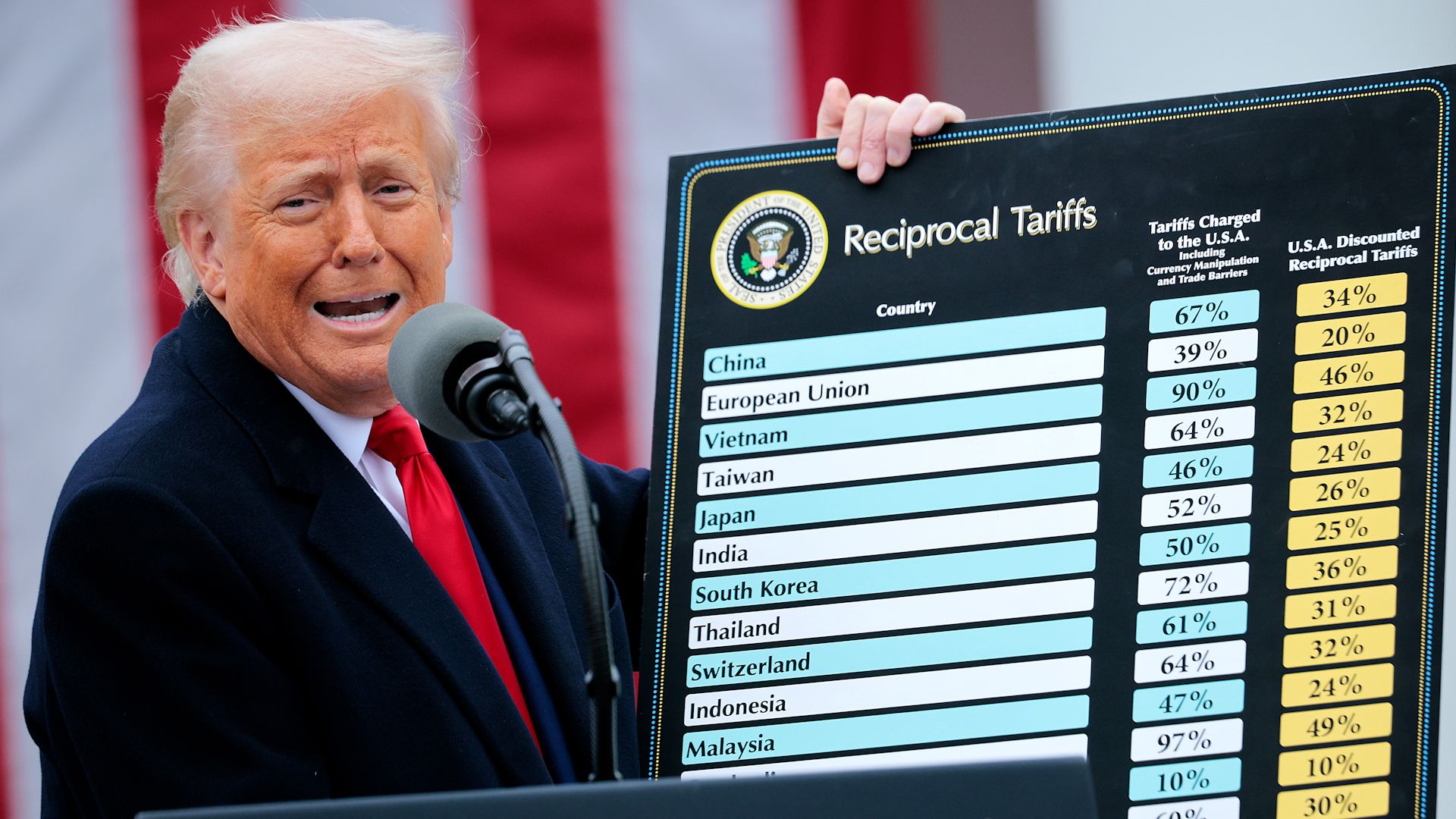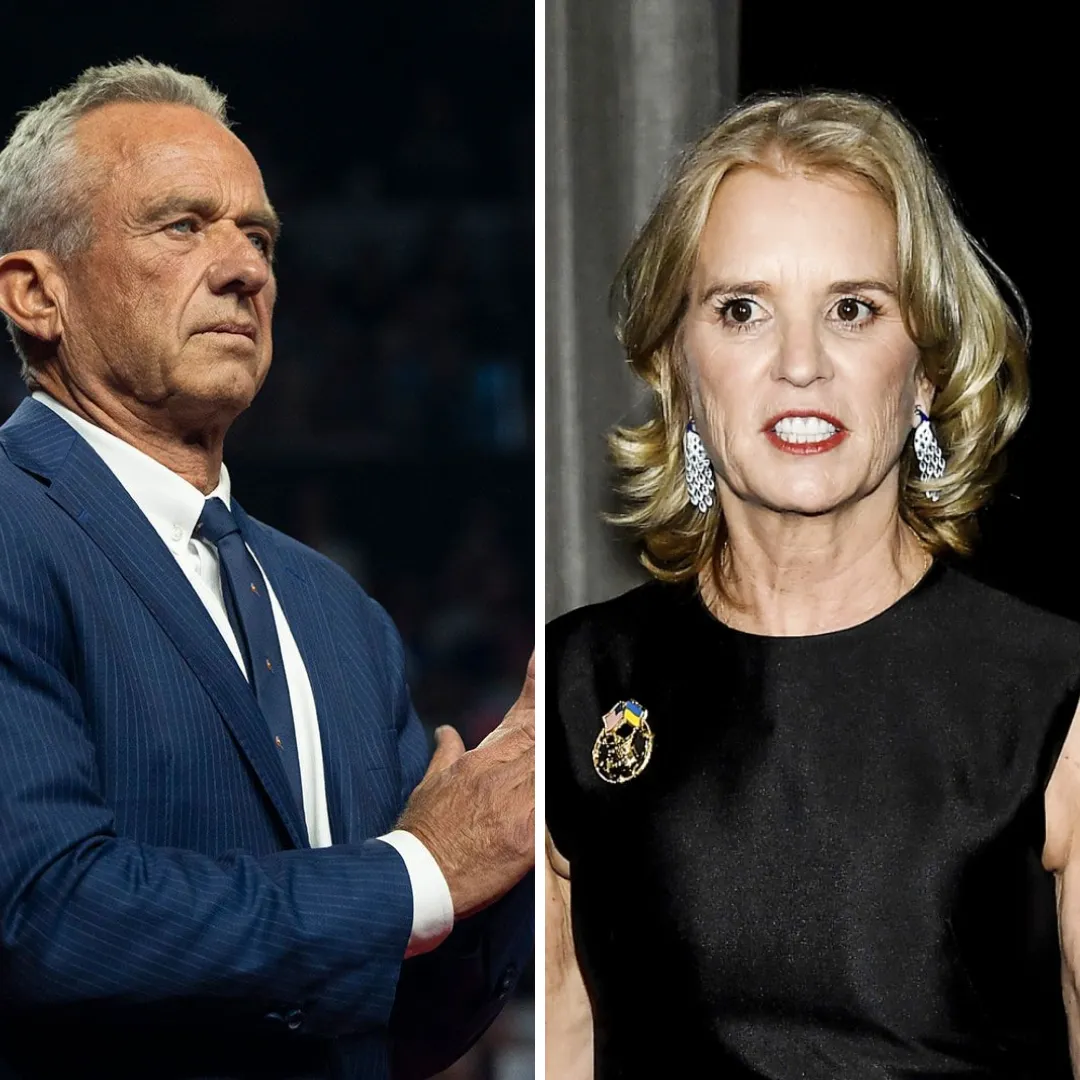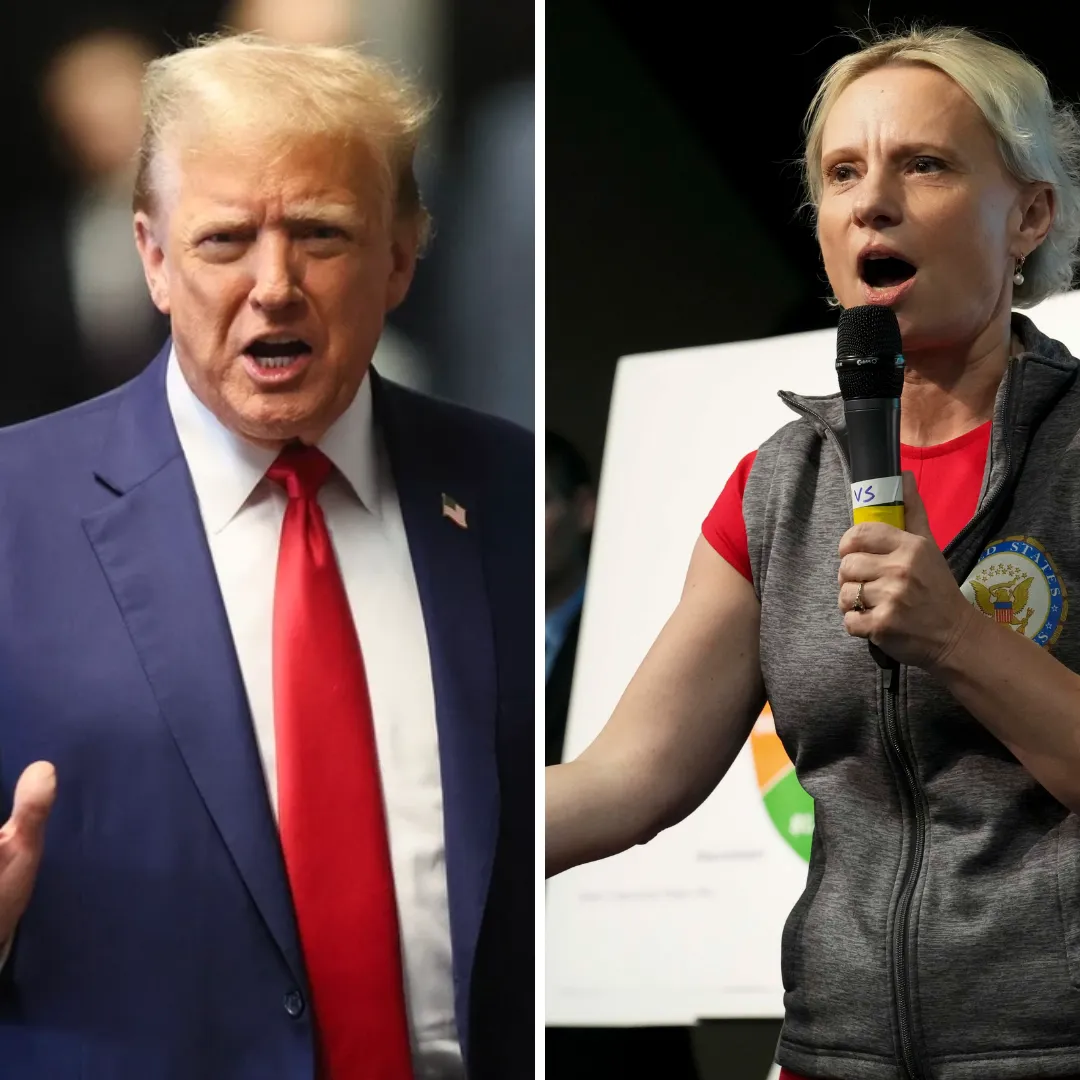
A two-minute-long takedown of President Donald Trump’s trade policies on MSNBC sent the president into a frenzy on Friday, as business host Stephanie Ruhle harshly criticized the effectiveness of Trump’s tariffs.
The segment, which laid bare the negative impacts of the tariffs on U.S. businesses, sparked a furious response from Trump, who took to Truth Social to express his anger.
"Donald Trump is backed into a corner," Ruhle began, pointing out that the president’s grand vision of using tariffs as an economic strategy is faltering.
“His grand plans of ‘tariffs, tariffs, tariffs,’ aren’t working. You’re seeing day in and day out more business leaders—whether it’s Warren Buffett, or Jamie Dimon, or Ken Griffin—on big global stages saying, ‘This is going to crush us economically.’ And then you’ve got congressmen, senators from every state, saying to this White House, ‘Our small businesses are strangling, are dying here.’”
Ruhle's tone was firm and direct as she continued to explain that Trump, despite his firm belief in the tariff approach, is now realizing the devastating consequences of the policies.
“I’m not saying Donald Trump has changed what he thinks in his heart, but he’s backed into a corner and he needs to get off this crazy tariff train, and he knows it,” Ruhle concluded.
She went on to scrutinize a recent deal between the U.S. and the U.K., suggesting that Trump was merely staging a performance to appease his base, without offering concrete solutions to the trade issues.
“You’ve got a P.M. there who is a close ally of Donald Trump, and they’re saying, ‘Let’s put on a show, let’s create a theater, and let’s say we’ve got a deal.’ Yes, there aren’t any details to it, there is still a 10 percent tariff, which is why Jay Powell is not cutting rates, ‘cause 10 percent is more than triple what it was, so it’s still going to be painful, especially for small business,” Ruhle explained.
Ruhle’s analysis continued with sharp criticism of Trump’s shifting stance on tariffs with China. “A week ago, China was like, ‘We’re not showing up unless you lower the tariffs,’ and [they] didn’t. Forty-eight hours ago Donald Trump said, ‘We’re not gonna lower the tariffs.’ Yesterday he said, ‘Yeah, maybe.’ And today things are softening even more… Donald Trump is looking for some sort of exit here,” she added, noting that the president’s position was weakening.
The MSNBC host also warned that the trade situation could lead to a supply chain crisis similar to what the country faced during the COVID-19 pandemic.
“Look at the cargo ships coming into Seattle, the Port of Los Angeles; pick the port. We’re getting fewer and fewer ships with less and less cargo. And unless he turns this around, three weeks from now you walk into a store and we’re going to have a Covid-like supply chain crisis, and Trump is looking for an exit.”
Ruhle’s precise dismantling of Trump’s tariff strategy clearly got under the president’s skin. In response, Trump took to Truth Social, lashing out at Ruhle personally while deflecting the core issues she raised.
“I just watched an exhausted, highly neurotic Stephanie Ruhle spew LIES about Tariffs, as do many others, in order not to give me the Victory that they all see coming,” Trump wrote in his post. “Few people know Stephanie Ruhle, but I do, and she doesn’t have what it takes.”
Trump then shifted his focus from the substance of Ruhle’s critique to attacking her character and intelligence. “Our Deal with the United Kingdom yesterday was AMAZING for both Countries and, in addition to everything else, British Airways just ordered $10 Billion Dollars worth of new Boeing planes,” he boasted, attempting to frame the deal as a major success despite Ruhle’s arguments.
“We’re going to make a fortune with Tariffs, only smart people understand that, and Stephanie was never known as a ‘High IQ’ person.”

In his post, Trump did not engage with Ruhle’s arguments about the economic damage tariffs were causing but instead focused on her demeanor and her professional background.
He concluded by taking aim at MSNBC, calling it the “Voice of the Democrat Party” and accusing it of spreading lies. “MSDNC has become the Voice of the Democrat Party, and they should be treated as a Political Advocate with all of the Taxes and Penalties therefrom,” Trump wrote.
“Their Ratings are terrible, but Brian Roberts and his crew should be forced to TELL THE TRUTH. MAKE AMERICA GREAT AGAIN!”
The president’s explosive response avoided addressing the points Ruhle made about the tangible negative effects of his trade policies on American businesses and consumers.
Instead, Trump resorted to personal attacks and rhetoric aimed at undermining the credibility of his critics. By focusing on Ruhle’s personality and the supposed bias of MSNBC, Trump deflected attention away from the substance of the discussion and continued his narrative of fighting against the so-called “fake news” and “liberal media.”
The back-and-forth between Trump and Ruhle highlights the ongoing clash between the president and his critics over trade and economic policy. As the trade war with China continues to unfold, Trump’s tariff policies remain a divisive issue.
While some supporters argue that tariffs are necessary to protect American industries and reduce the trade deficit, others, including prominent business leaders and economists, warn that the long-term economic consequences could be disastrous for both consumers and businesses.
Trump’s inability to effectively counter the critiques of his tariff strategy may lead to further frustration among those who once supported his economic agenda.
Trump’s heated response to Ruhle’s segment also underscores the growing tension within the White House as the president faces mounting criticism from all sides.
His trade policies, which were initially championed as a way to address unfair foreign competition, have not resulted in the promised economic benefits. Instead, many of the industries that Trump vowed to protect have found themselves struggling under the weight of higher costs and disrupted supply chains.
The president’s inability to implement his trade agenda without significant pushback may threaten his broader economic vision and his legacy on the global stage.
In conclusion, the MSNBC segment that sent Trump into a public meltdown exposed the growing frustration and uncertainty surrounding his trade policies.
The president’s reliance on tariffs as a key tool of economic strategy has faced increasing scrutiny, and as business leaders, lawmakers, and even some of his own supporters continue to voice concerns, Trump is forced to confront the reality that his policies may be causing more harm than good.
The fallout from this latest exchange with Ruhle further highlights the challenges Trump faces as he tries to navigate his economic agenda and the mounting opposition to his administration’s policies.





